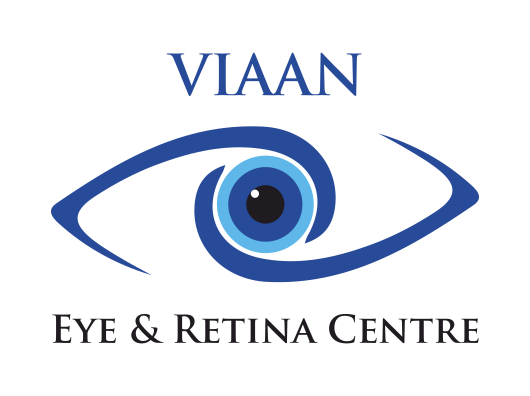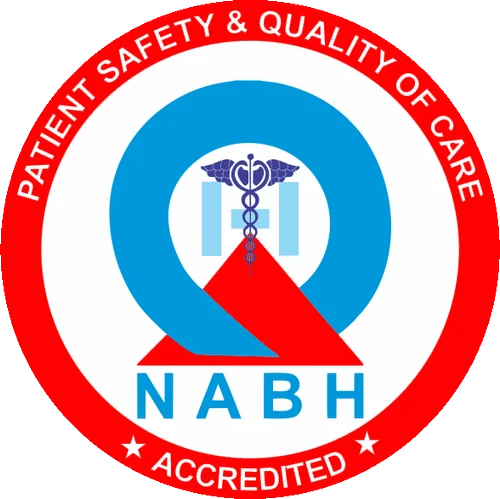CATARACT
What is a Cataract?
Our eyes are made of many parts and a lens is one of them. Inside our eyes, a natural lens plays a crucial role in refracting light and making you perceive clear vision. However, with the onset of a cataract, this lens becomes cloudy. This causes vision like you are looking through a foggy car windshield- blurry, hazy vision with very little colour vibrancy. A cataract specialist in Gurgaon can help you rectify your vision.
Causes of Cataracts
While ageing is a primary cause of cataract development, various factors contribute to cataracts. If you have health disorders like diabetes, glaucoma, and kidney disease, you have a higher chance of developing cataracts.
Dr Neeraj Sanduja, a cataract specialist in Gurgaon, says that certain lifestyle habits like smoking and certain medications can also play a role in causing early onset of cataracts.
Trauma to the head or eye region, eye injuries, and radiation treatment of the upper body are also causes of cataracts that are not related to old age.
Symptoms of Cataract and When to Consult a Specialist
How do you know if cataracts are affecting your eyes? Identifying symptoms early is crucial for better management of the condition. Though cataract requires to be diagnosed by a cataract specialist in Gurgaon, here are some symptoms to look out for:
– Blurred vision
– Double or multiple images
– Glare or sensitivity to light
– Difficulties with night vision
– Faded colours
– Challenges in reading, particularly under dim light
– Halos around lights
– Changes in eyeglass prescription that don’t improve vision
– Frequent changes in prescription glasses
– Need for brighter light when reading or performing close-up tasks
– Difficulty seeing clearly, even with the use of corrective lenses
– Perception of a “film” or “cloud” over the eyes
– Poor depth perception
If you notice any combination of these symptoms, it’s advisable to consult with a cataract specialist in Gurgaon for a comprehensive eye examination and evaluation. Early detection and treatment of cataracts can significantly improve the quality of your vision and overall eye health.
Treatment Options
Firstly, it’s essential to know that there’s no magical medication to dissolve cataracts. When daily tasks become a struggle due to cataracts, it’s time to consider surgery. But worry not, advancements have made cataract surgery a routine and safe procedure. Discussing surgical options with your ophthalmologist- a cataract specialist in Gurgaon is key to clarity and the first step towards treatment.
MICS Cataract Surgery- A Minimally Invasive Approach
Minimally invasive cataract surgery (MICS) is a stitch-free, anesthetic-drops-only procedure. It uses ultra-small incisions that ensure a relatively painless experience, shorter recovery times, and minimal risks involved with the procedure. This procedure involves the extraction of the cataract lens and then followed by the implantation of the latest ultra-thin foldable IOLs.
Choosing Your New Lens
When it comes to lens replacement (IOL), you have different options to choose from. Though your cataract specialist in Gurgaon will suggest the best lens for you after discussing your needs, being educated about the options helps:
– Monofocal IOLs: These lenses clear things up for distance giving you a clear distance vision, but you might need reading glasses.
– Multifocal IOLs: These make you say “goodbye” to glasses, providing clear vision for all distances.
– Bifocal and Trifocal IOLs: These are perfect lenses for you if you need a little extra help with intermediate and near vision.
– EDOF IOLs (Extended Depth of Focus): If you are someone who has a very active lifestyle, these lenses help maintain clear vision at various distances.
– Toric IOLs: These are a specialized choice if you are dealing with astigmatism.
Choosing a Cataract specialist in Gurgaon
When considering cataract surgery, choosing the right cataract specialist in Gurgaon is of prime importance. After all, it is a question of your eyes!
In Gurgaon, Viaan Eye and Retina Centre ensures personalized care and cutting-edge treatments. Discussing your options with a cataract specialist in Gurgaon like Dr. Neeraj Sanduja will guide you toward the most suitable path for clearer, brighter vision.
Can cataracts be treated at any time?
In the past, people believed that a cataract had to develop completely before it could be removed, but this is no longer true. A cataract surgery can be performed at any time when reduced vision is affecting your life on a daily basis. It is a safe and predictable procedure that can be performed at any point in your life.
Is it possible to avoid cataract surgery if you do not treat it?
Over time, untreated clouded areas of the lens can become larger and denser, causing worsening vision. There is no time limit on how long it might take. Eventually, your whole lens may become clouded, resulting in even more blurred vision, thus adversely affecting your daily life.
What are the criteria for selecting the right lens for me?
There is no one lens that works for everyone, and your ophthalmologist can recommend the most suitable option for you.
Which surgical procedure is the most effective?
The best surgical procedure is one that combines high precision and has the greatest safety margin. As of now Laser Cataract Surgery and selecting a package where all disposable instrumentation is used is probably the best.
Is there any possibility of Cataract coming back?
Cataract cannot not reoccur. However over a period of time, some patients may complain of cloudy vision. This condition is called secondary cataract and it can be treated by a simple laser procedure.
Does cataract surgery is successful and what is the rate of success?
The success rate of a cataract surgery is +98%. Continuous innovation in techniques and instruments has made the procedure simpler and safer than before.
Which is a good technique for cataract surgery?
Phacoemulsification is a good technique and has the following benefits – micro incision, stitch less, safe and fast visual recovery.
When can I resume daily routine?
Minimum of seven days rest is recommended before you resume your day-to-day activities. This may vary based on your eye condition and your working environment. Polluted and stressful environment should be avoided.
Does glasses are required after cataract surgery?
In most of the cases a small refractive error is present after cataract surgery and wearing glasses will make your vision sharper.
Cataract surgery is done under LA or GA? Will I be awake during the surgery?
Cataract surgery is done in local anaesthesia & yes you will be awake. Your surgeon will offer you medication to help you relax and take steps to make sure you don’t feel any pain.
What is the duration of the Cataract Surgery?
The procedure typically lasts between 15 and 30 minutes, though it may be two to three hours from when you check in until you leave Operation Theater.
What is the costing of cataract surgery?
The cost of cataract surgery can vary depending on a number of factors, including: Type of intraocular lens (IOL) you want to select The technology involved in the procedure For more details please visit Viaan Eye & Retina Centre or call us on+91 9958065151,+91 9560697627 or email us at viaaneyeretina@gmail.com
Does my vision will be perfect instantly after surgery?
Till your eyes are healing after the surgery, you may experience various visual disturbances, such as glare and halos (rings around light sources) in certain lighting conditions. This is normal and usually subsides over time.
Does the Lens implanted in my eye have any expiry?
There is no expiry for IOL(lens) implanted in your eye during cataract surgery. The new lens should provide clear vision for the rest of your life.
How many days my eye will take to get fully recovered?
Most people notice a significant improvement in their vision and can resume everyday activities within 24 hours after cataract surgery with precautions that have been informed to you after surgery. However, depending on which intraocular lens you have implanted, it can take between two weeks to six months to completely adjust and for you to achieve your optimal vision.
Are there any complications if I don’t go for cataract removal?
If the cataract reaches an advanced stage, vision will deteriorate. At this stage, cataract can also increase the pressure in the eye. This increases the risk of glaucoma.
What is the duration of stay, required in hospital after cataract surgery?
You do not have to stay. Surgery can be done as a day care procedure and the patients can go home a few hours after surgery.
Is there any insurance coverage of Cataract surgery & cash facility available at Viaan?
Yes, at Viaan we have most of the TPA’s empanelled with us. Please refer Health Insurance for more details.
Is there any cashless facility or government rates available?
Yes, we are empanelled with the CGHS, ECHS, DDA, Power grid, Ayushman Bharat and many other PSU’s
How many days will I need to wear the dark glasses?
For your safety, you will need to wear the dark sunglasses for 1 month after surgery at least outdoors.
I have systemic problems (like heart problems, asthma). Can I still get cataract surgery?
Yes. You will need to get fitness from physician or the specialist who treats your systemic condition.
Can I get cataract surgery if I am diabetic?
Yes, as long as your blood sugar levels are under control.
Can I take my regular medicines on the day of the surgery?
Yes, you can take all regular medicines, except blood thinning tablets.
Can I eat all types of food?
Yes. Both vegetarian and non-vegetarian are fine.
When can I resume my duties?
You can resume your duties after MICS surgery, after 10 days. With manual surgery, you can return after 1 month.
Is it ok to take bath after surgery and how many days I have to wait?
You can take bath after surgery but for head bath you should wait till 15 days. Do not splash water on your eyes, and face.
Can I do exercise or yoga after the surgery?
The physical pressure is not advisable right after surgery. You will need to wait at least 15 days before you can do any exercise or yoga. For yoga that increases the pressure on the eye (such as kapalbhati), you may need to wait 3 weeks.



